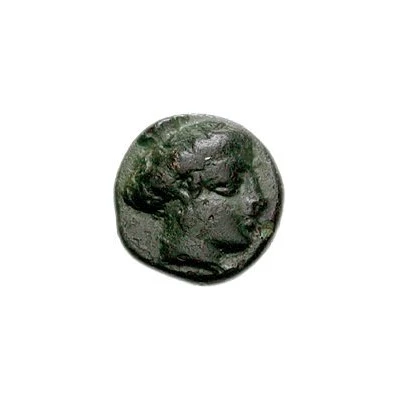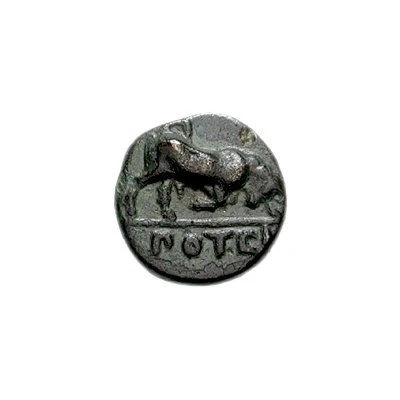


© Classical Numismatic Group, Inc.
Æ10 400 BC - 356 BC
| Bronze | 1.35 g | 10.0 mm |
| Issuer | Potidaia (Macedon) |
|---|---|
| Type | Standard circulation coin |
| Years | 400 BC - 356 BC |
| Currency | Drachm |
| Composition | Bronze |
| Weight | 1.35 g |
| Diameter | 10.0 mm |
| Shape | Round (irregular) |
| Technique | Hammered |
| Demonetized | Yes |
| Updated | 2024-10-10 |
| Numista | N#178526 |
|---|---|
| Rarity index | 95% |
Reverse
Bull butting right
Script: Greek
Lettering: ΠΟΤΕΙ
Interesting fact
The Æ10 coin from Potidaia (Macedon) was used as a form of currency during the 4th century BC, and its design features a unique combination of symbols and letters that were specific to the region. The obverse side of the coin features a helmeted head of Athena, the Greek goddess of wisdom and war, while the reverse side features a horse and a dolphin, which were symbols of the city of Potidaia. The use of these symbols and letters on the coin helped to establish a sense of identity and community among the people of Potidaia, and it remains an important artifact in the study of ancient Greek history and culture.